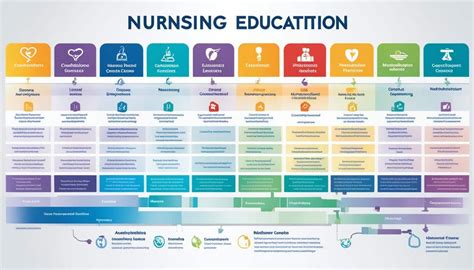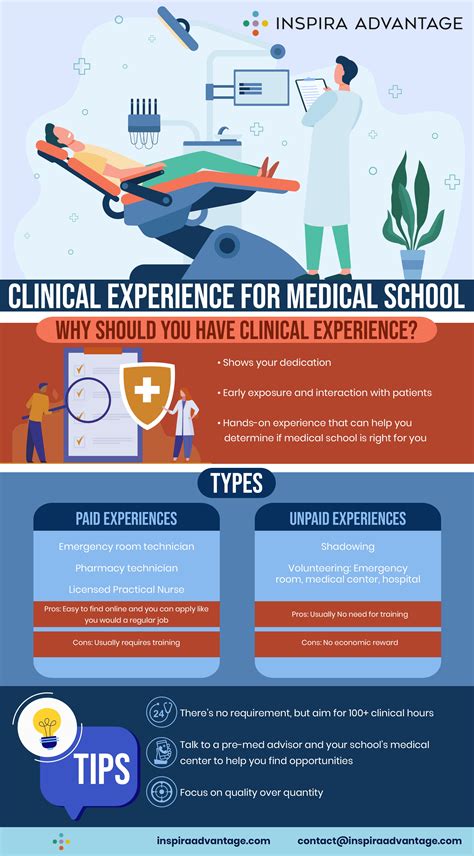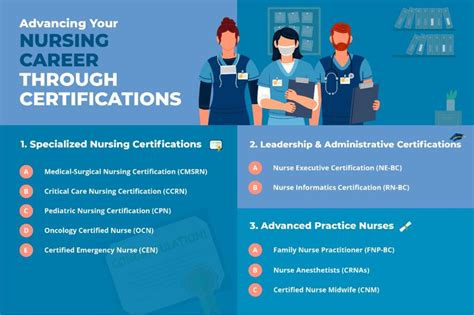Intro
Embark on a rewarding nursing career with our comprehensive guide. Learn the step-by-step process to become a nurse, from education and training to licensure and certification. Discover the various nursing specialties, job roles, and growth opportunities. Get expert advice on creating a successful nursing career pathway and start your journey today.
Are you considering a career in nursing? With the increasing demand for healthcare services, nursing has become one of the most in-demand professions globally. Nursing is a rewarding and challenging career that offers a wide range of opportunities for personal and professional growth. In this article, we will guide you through the steps to become a nurse and provide you with valuable insights into the world of nursing.
The nursing profession requires a unique blend of scientific knowledge, technical skills, and compassion. Nurses play a vital role in the healthcare system, working closely with patients, families, and healthcare teams to provide high-quality care. With various specialties and career paths to choose from, nursing offers a diverse range of opportunities for individuals who are passionate about making a difference in people's lives.

Step 1: Meet the Basic Requirements
To become a nurse, you must meet the basic requirements for nursing education and licensure. These requirements vary by country, state, or province, but typically include:
- Earning a high school diploma or equivalent
- Completing a nursing program approved by the relevant regulatory body
- Passing the National Council Licensure Examination (NCLEX-RN) or equivalent
Nursing Education Programs
Nursing education programs are designed to prepare students for the demands of the nursing profession. These programs typically include:
- Associate's degree in nursing (ADN)
- Bachelor's degree in nursing (BSN)
- Diploma in nursing
- Master's degree in nursing (MSN)
- Doctoral degree in nursing (DNP or PhD)

Step 2: Choose a Nursing Specialty
Nursing is a diverse profession with various specialties to choose from. Some of the most popular nursing specialties include:
- Pediatric nursing
- Gerontological nursing
- Critical care nursing
- Operating room nursing
- Mental health nursing
- Community health nursing
Specializing in Nursing
Specializing in nursing requires additional education and training beyond the basic nursing degree. Many nurses choose to specialize in a particular area of nursing to enhance their skills and knowledge.

Step 3: Gain Practical Experience
Gaining practical experience is essential for nursing students and new graduates. Many nursing programs offer clinical rotations, internships, or fellowships to provide students with hands-on experience.
Clinical Experience
Clinical experience is critical for developing the skills and confidence needed to succeed in the nursing profession. Many hospitals and healthcare organizations offer clinical experience programs for nursing students.

Step 4: Obtain Licensure and Certification
To practice as a nurse, you must obtain licensure and certification. Licensure requirements vary by country, state, or province, but typically involve passing the NCLEX-RN or equivalent.
Nursing Certification
Nursing certification demonstrates expertise and knowledge in a particular area of nursing. Many nurses choose to become certified in their specialty to enhance their career prospects.

Step 5: Pursue Continuing Education
The nursing profession is constantly evolving, and nurses must stay up-to-date with the latest developments and research. Pursuing continuing education is essential for maintaining licensure and certification.
Continuing Education Opportunities
Many nursing organizations and educational institutions offer continuing education opportunities for nurses. These opportunities may include workshops, conferences, and online courses.

Step 6: Join a Professional Nursing Organization
Joining a professional nursing organization is an excellent way to network with other nurses, stay updated on industry developments, and access continuing education opportunities.
Professional Nursing Organizations
Many professional nursing organizations offer membership benefits, including access to continuing education, networking opportunities, and career resources.

Conclusion
Becoming a nurse requires dedication, hard work, and a passion for helping others. By following these steps, you can embark on a rewarding and challenging career in nursing. Remember to stay up-to-date with industry developments, pursue continuing education, and join a professional nursing organization to enhance your career prospects.
We invite you to share your experiences, ask questions, or provide feedback in the comments section below. Join the conversation and let's explore the world of nursing together!
What are the basic requirements for becoming a nurse?
+The basic requirements for becoming a nurse include earning a high school diploma or equivalent, completing a nursing program approved by the relevant regulatory body, and passing the National Council Licensure Examination (NCLEX-RN) or equivalent.
What are some popular nursing specialties?
+Some popular nursing specialties include pediatric nursing, gerontological nursing, critical care nursing, operating room nursing, mental health nursing, and community health nursing.
What is the importance of continuing education in nursing?
+Continuing education is essential for maintaining licensure and certification, staying updated on industry developments, and enhancing career prospects.
